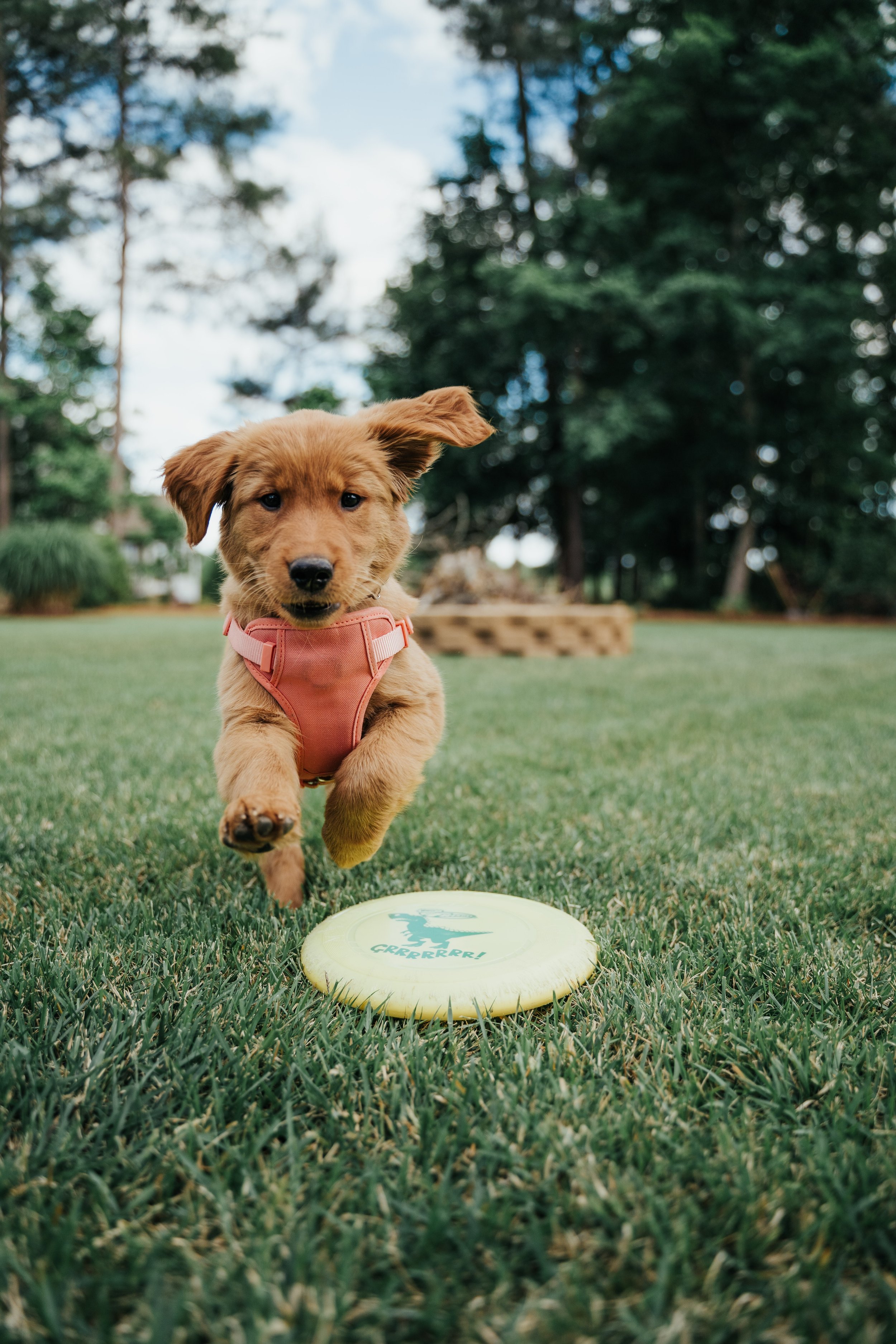
FAQ’S
What is Bayside Service Dogs?
Bayside Service Dogs is a non-profit service dog organization placing specially trained service dogs with children, civilians, and veterans in need at no cost to the client.
How much does a Bayside Service Dog cost?
Our fully trained service dogs are provided to the clients at no cost. The clients are not required to pay any expenses to receive their Bayside Service Dog. Bayside chooses to have a pay-as-you-can campaign. This means the clients are able to fundraise as they are able to help offset the costs of placing our service dogs at no cost, but this is not a requirement. At time of placement, our service dogs are estimated to be worth around $60-$75,000.
What is a pay-as-you-can campaign?
To learn more about our pay-as-you-can campaign, click here.
How long do I have to wait to receive a dog?
The current estimated wait time before solidifying a Matching Ceremony is 20-24 months. This is due to the first puppies entering the program in July of 2023. Once Bayside is further developed, we hope our wait time is reduced to around 6 months.
Can you train my dog to become a service dog?
No. We do not currently offer the option of owner-trained service dogs.
How do I apply?
Click here to apply and complete the initial application. Once completed, the estimated wait time to hear back if your initial application is approved to move on to the next step in the application process is 1-2 weeks. This is to determine if Bayside is the right fit for your needs. If we are not able to serve your disability, we will provide you with information of who CAN help you!
What types of dogs do you train?
We primarily work with Golden Retrievers and Labrador Retrievers. We provide Psychiatric Service Dogs, Mobility Assistance Dogs, Autism Assistance Dogs, Hearing Alert Service Dogs, and Facility Dogs. We do not currently offer Seizure Response/Alert, Diabetic Response/Alert, or Guide Dogs for those with visual impairments.
I have allergies, can I still get a dog from you?
In short - it depends. If you are on allergy medication and your doctor(s) state you are still able to care for and have a dog with proper medication, then yes. However, we do not train hypo-allergenic dogs. We can provide you with resources of organizations who do provide hypo-allergenic dogs that may suit your needs better.
Where do you get your dogs from?
Currently, we receive all of our puppies from reputable breeders on the East Coast. However, our future goal is to have our own breeding program to specifically breed for our program.
Can I name a puppy in-training?
Yes! We have lots of sponsorship opportunities including the eligibility of naming a puppy! Check out our program sponsorship opportunities to learn more!
How can I volunteer?
We have lots of volunteer opportunities! Currently our most needed volunteer opportunities are our puppy socialization fosters and our training fosters. Click here to learn more.
What does a puppy socialization foster and training foster do?
Both of these volunteer opportunities allow you to have our service puppies and dogs in-training in your home. You will be able to learn from staff members how to train basic and advanced obedience and work your way up to learning disability tasks. You are allowed to have other pets in the home - they must be friendly with other dogs & up to date on all vaccines and preventatives.
My company wants to get involved, how do we do this?
If you would like us to do facility visits to your company, check out our request a visit page to set up a date/time. If you would like to get involved in other ways, please email info@baysideservicedogs.org.
I am a breeder who is interested in donating a puppy to your program, how do I do this?
Please email info@baysideservicedogs.org your kennel information. We require all breeders to have OFA health testing - hips, elbows, eyes, and cardiac completed on parents (genetic testing is optional, but a plus!). We look for breeders who follow Puppy Culture or Avidog programs/methods, complete ENS/ESI, daily handling and socialization for the puppies, and are open to completing temperament testing at 7 weeks old to determine which puppy is best suited for service work. Any breeder who is interested in donating a puppy will be able to receive an in-kind donation letter written for the standard price of a puppy.